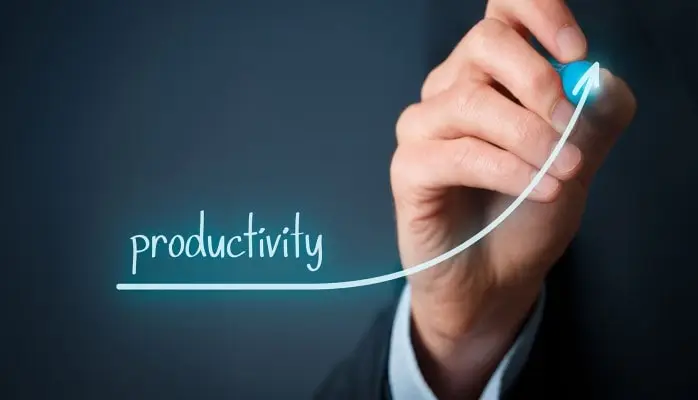Brain is an amazing and complex machine, and like all machines, there are a few hacks and tweaks that can increase performance and output. These brain hacks will help you get more from the work day, increasing productivity and reducing the urge to waste the day browsing Facebook and Twitter.
1. Do Some Exercise
Exercise is a great way to boost blood flow, trigger the release of feel-good endorphins and prepare you for the working day. You can go for a run prior to starting the day or you can take a break to lift some weights-just try working out during your working day and you’ll reap the rewards.
2. Follow Parkinson’s Law
Parkinson’s Law dictates that a task will take as long as it has been allocated. In other words, an 8-hour workday will be filled whether you have a task that takes 8 hours or a task that takes 2 hours. In the case of the former you’re working flat-out to get the job done, in the case of the latter you’re procrastinating and working slowly, even if you don’t realize it. Think about how long a task will take you and make sure your working day is filled to the brim.
3. Work Early or Late
The early hours of the morning are some of the most productive, as there is no noise and no one around to distract you. This is especially true for parents of young children or anyone in busy households, but it also applies for people who live alone, as they know they won’t be distracted by visitors, phone claims, emails or Facebook messages. The best way to use this time is to get an early start, waking up at 5am or 6am to give yourself an hour or two of complete silence. If you have a particularly demanding project to finish you can also try to flip your sleep cycle on its head, sleeping throughout the day and working at night. This only works, however, if you actually get some sleep, as nothing will kill your productive faster than insomnia.
4. Swap Alcohol for Coffee
Caffeine is a great productivity tool and millions of office workers rely on it to get a bright start and to keep going throughout the day. The same can’t be said for alcohol though and the older you are, the more of an impact it will have on your productivity. A drink on Sunday night could render you useless for most of Monday, and if it takes you awhile to recover then you my even find that a heavy session on Friday and Saturday can still be felt on Monday morning. An increasing number of workers are also using alcohol to help them sleep and ease the stress of the working day, but while it does have a relaxing effect in the short-term and will help you to sleep, that sleep will be restless, leaving you tired and unproductive the following day.
5. Swap Alcohol for Coffee
We tend to be more productive when we know that we have to do something. But the opposite is true for work that doesn't have a set deadline. To get around this, try setting yourself a deadline and making yourself accountable for it. Tell your employers or your colleagues that the project will be finished by a specific time or day, thus pushing you to complete it in that timeframe. No one likes being made to look lazy or unreliable, so even though the deadline is self-imposed, the accountability factor will still push you over the finish line.
6. Clean-up
A clean work space can help you to de-stress and focus on what’s important. It also helps if you add some greenery to your work environment or, if possible, place your desk next to a window with a view. A calming bucolic scene will help to awaken your senses and research suggests that a view of nature can also trigger creativity. In fact, this seems to be the case even if the greenery is fake, so add some posters/paintings of nature if you can’t move your desk near a window.
7. Record/Time Yourself
Everyone has a peak of about 2 hours to 2.5 hours when they will be at their most productive. This can vary from day to day, but as it’s typically based on proximity to meal times and sleep cycles, it should remain the same if you don’t make any other changes. It's not always easy to know when this time is, but if you record how much work you do over the day using tracking software, you should have a good idea. There are all kind of apps to help with this, including apps that will track your keystrokes and the time you spend away from the keyboard to tell you when you are at your most productive. You should also have an idea of when you feel the most alert and active and can compare this to the results of the productivity analysis. Once you have a good idea of your optimal time, you can make sure that you’re working on the most difficult and demanding projects during this time, as opposed to wasting it taking a break or messing about on Facebook.
Bio-Nicky Sarandrea writes about marketing, productivity and strategic management for a number of companies in the United States, Canada and across Europe.
